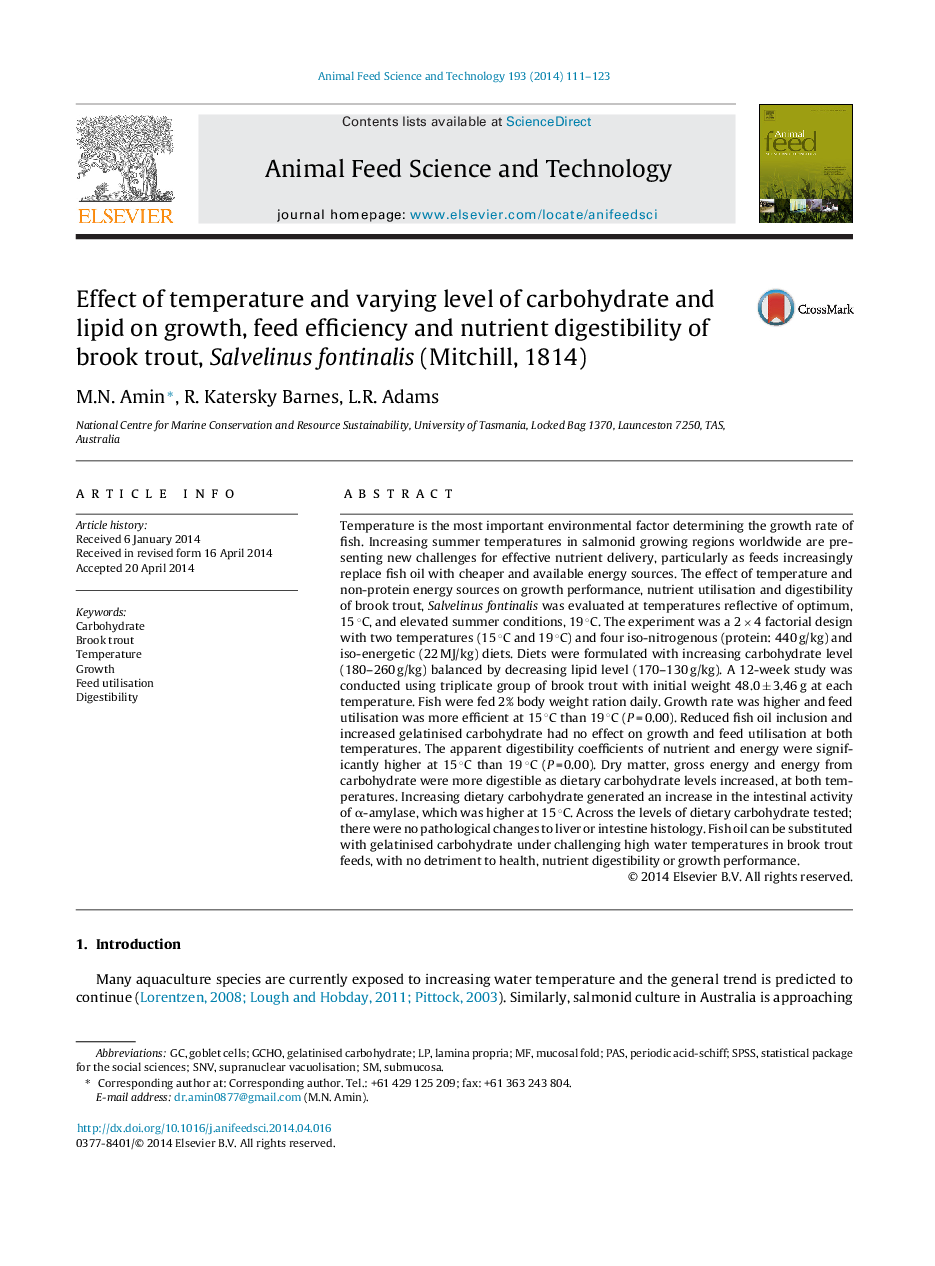| Article ID | Journal | Published Year | Pages | File Type |
|---|---|---|---|---|
| 2419591 | Animal Feed Science and Technology | 2014 | 13 Pages |
•The effect of gelatinised carbohydrate levels on brook trout, Salvelinus fontinalis was evaluated.•Growth performances and nutrient utilisation of brook trout were evaluated at two temperatures (15 °C and 19 °C).•Increasing levels of gelatinised carbohydrate had no effect on growth, digestibility, feed utilisation and liver or intestine histology.•Growth rate was higher and feed utilisation was more efficient at 15 °C than 19 °C.
Temperature is the most important environmental factor determining the growth rate of fish. Increasing summer temperatures in salmonid growing regions worldwide are presenting new challenges for effective nutrient delivery, particularly as feeds increasingly replace fish oil with cheaper and available energy sources. The effect of temperature and non-protein energy sources on growth performance, nutrient utilisation and digestibility of brook trout, Salvelinus fontinalis was evaluated at temperatures reflective of optimum, 15 °C, and elevated summer conditions, 19 °C. The experiment was a 2 × 4 factorial design with two temperatures (15 °C and 19 °C) and four iso-nitrogenous (protein: 440 g/kg) and iso-energetic (22 MJ/kg) diets. Diets were formulated with increasing carbohydrate level (180–260 g/kg) balanced by decreasing lipid level (170–130 g/kg). A 12-week study was conducted using triplicate group of brook trout with initial weight 48.0 ± 3.46 g at each temperature. Fish were fed 2% body weight ration daily. Growth rate was higher and feed utilisation was more efficient at 15 °C than 19 °C (P = 0.00). Reduced fish oil inclusion and increased gelatinised carbohydrate had no effect on growth and feed utilisation at both temperatures. The apparent digestibility coefficients of nutrient and energy were significantly higher at 15 °C than 19 °C (P = 0.00). Dry matter, gross energy and energy from carbohydrate were more digestible as dietary carbohydrate levels increased, at both temperatures. Increasing dietary carbohydrate generated an increase in the intestinal activity of α-amylase, which was higher at 15 °C. Across the levels of dietary carbohydrate tested; there were no pathological changes to liver or intestine histology. Fish oil can be substituted with gelatinised carbohydrate under challenging high water temperatures in brook trout feeds, with no detriment to health, nutrient digestibility or growth performance.
